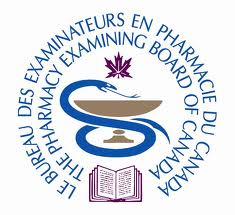RSV Vaccination and Community Trust
Respiratory Syncytial Virus (RSV) is a common respiratory virus that can cause serious illness in infants, young children, and older adults. Despite the development of vaccines to protect against RSV, achieving widespread community trust and acceptance remains a significant challenge. This article explores the importance of RSV vaccination, the factors influencing community trust, and strategies to enhance vaccine uptake.
The Importance of RSV Vaccination
Burden of RSV
RSV is a leading cause of respiratory illness in young children, particularly those under the age of two. It can lead to severe bronchiolitis and pneumonia, often requiring hospitalization. In older adults, RSV can exacerbate chronic conditions and lead to severe respiratory complications.
Benefits of Vaccination
- Prevention of Severe Illness: Vaccination can significantly reduce the incidence and severity of RSV infections.
- Reduction in Hospitalizations: Vaccinated individuals are less likely to require hospitalization, easing the burden on healthcare systems.
- Protection of Vulnerable Populations: Widespread vaccination helps protect those who cannot be vaccinated, such as very young infants or individuals with certain medical conditions.
Factors Influencing Community Trust
Historical Context
- Previous Vaccine Campaigns: Past experiences with vaccination programs, including both successes and failures, shape public perception and trust.
- Misinformation and Disinformation: The spread of false information about vaccine safety and efficacy can erode public trust.
Socioeconomic and Cultural Factors
- Access to Healthcare: Communities with limited access to healthcare services may have lower vaccination rates and trust.
- Cultural Beliefs and Practices: Cultural attitudes towards health and medicine play a crucial role in vaccine acceptance.
Communication and Transparency
- Clear Messaging: Effective communication about the benefits and risks of vaccination is essential.
- Transparency in Development and Approval: Openness about the vaccine development process, clinical trials, and regulatory approval can build trust.
Community Engagement
- Local Health Initiatives: Community-based programs that involve local leaders and healthcare providers can enhance trust.
- Education and Outreach: Providing accurate information through trusted community channels can improve vaccine acceptance.
Strategies to Enhance Vaccine Uptake
Building Trust Through Transparency
- Open Communication: Regular updates on vaccine development, safety, and efficacy from credible sources.
- Addressing Concerns: Directly addressing common fears and misconceptions about the vaccine.
Leveraging Healthcare Providers
- Trusted Voices: Healthcare providers are often trusted sources of information. Training them to effectively communicate about the RSV vaccine is crucial.
- Personalized Conversations: Encouraging healthcare providers to have one-on-one discussions with patients about the benefits and safety of the vaccine.
Community-Based Approaches
- Engaging Local Leaders: Involving community leaders and influencers to advocate for vaccination.
- Culturally Sensitive Outreach: Tailoring messages to resonate with different cultural and socioeconomic groups.
Accessibility and Convenience
- Reducing Barriers: Making vaccines readily available and affordable to all segments of the population.
- Convenient Locations: Offering vaccinations in easily accessible locations such as schools, community centers, and workplaces.
Education and Advocacy
- Public Health Campaigns: Comprehensive campaigns that educate the public about the dangers of RSV and the benefits of vaccination.
- School Programs: Integrating vaccine education into school curricula to inform students and their families.
Case Studies and Examples
Successful Initiatives
- Flu Vaccination Campaigns: Lessons learned from successful influenza vaccination programs can be applied to RSV.
- COVID-19 Vaccination Efforts: Strategies used to promote COVID-19 vaccination can inform RSV vaccine campaigns.
Areas for Improvement
- Addressing Disparities: Targeting efforts to improve vaccination rates in underserved communities.
- Continuous Monitoring: Ongoing assessment of vaccine uptake and trust levels to adapt strategies as needed.
Conclusion
Achieving community trust in RSV vaccination is essential to protect vulnerable populations and reduce the burden of RSV-related illness. Through transparent communication, community engagement, and targeted education and outreach efforts, we can build a foundation of trust that supports widespread vaccine acceptance and uptake. By learning from past vaccination efforts and addressing current challenges, we can create a healthier, more resilient community in the face of RSV and other infectious diseases.




Comments